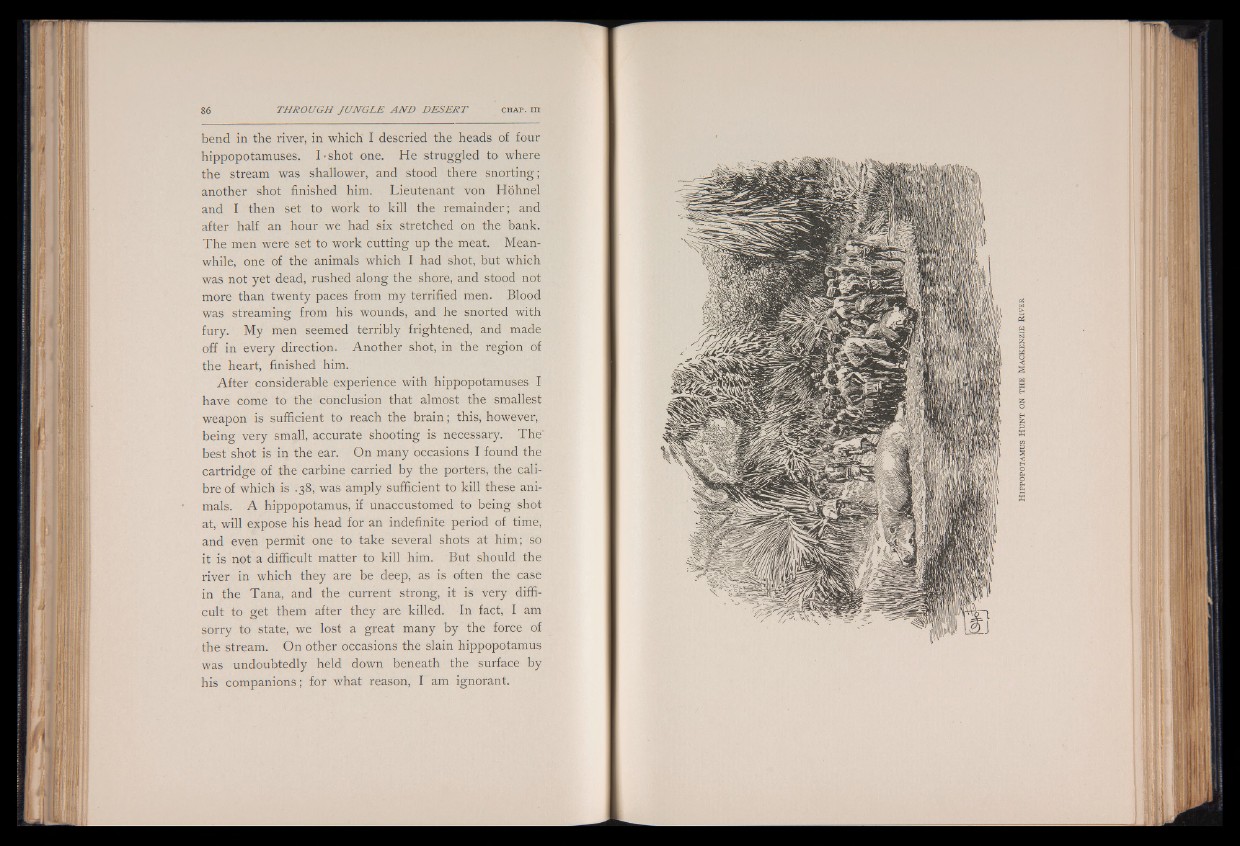
bend in the river, in which I descried the heads of four
hippopotamuses. I-shot one. He struggled to where
the stream was shallower, and stood there snorting;
another shot finished him. Lieutenant von Hohnel
and I then set to work to kill the remainder; and
after half an hour we had six stretched on the bank.
The men were set to work cutting up the meat. Meanwhile,
one of the animals which I had shot, but which
was not yet dead, rushed along the shore, and stood not
more than twenty paces from my terrified men. Blood
was streaming from his wounds, and he snorted with
fury. My men seemed terribly frightened, and made
off in every direction. Another shot, in the region of
the heart, finished him.
After considerable experience with hippopotamuses I
have come to the conclusion that almost the smallest
weapon is sufficient to reach the brain; this, however,
being very small, accurate shooting is necessary. The'
best shot is in the ear. On many occasions I found the
cartridge of the carbine carried by the porters, the calibre
of which is .38, was amply sufficient to kill these animals.
A hippopotamus, if unaccustomed to being shot
at, will expose his head for an indefinite period of time,
and even permit one to take several shots at him; so
it is not a difficult matter to kill him. But should the
river in which they are be deep, as is often the case
in the Tana, and the current strong, it is very difficult
to get them after they are killed. In fact, I am
sorry to state, we lost a great many by the force of
the stream. On other occasions the slain hippopotamus
was undoubtedly held down beneath the surface by
his companions; for what reason, I am ignorant.